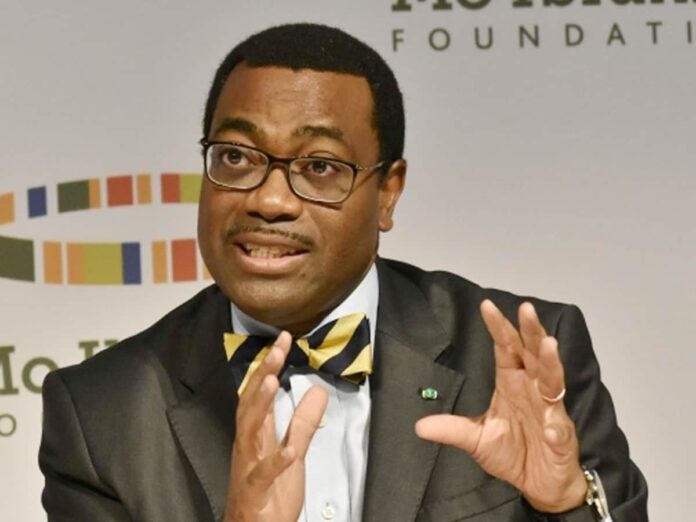By Jeph Ajobaju, Chief Copy Editor
Nigeria, Kenya, Cote d’Ivoire and other African countries had raised more than $17 billion from bond issuances by early 2019, according to the World Bank.
These countries must pay back the debts, even as most loans are obtained to be wasted or stolen outright.
eSwatini (formerly Swaziland) is ruled by Africa’s last absolute monarch, Ngwenyama Mswati. He has 15 wives, and a private jet, in one of the poorest countries on the continent.
Mswati – who was educated in highbrow boarding school in England – gets young virgins to parade before him in a Reed Dance ceremony every year in Mbabane and picks from among the 40,000 participating maidens anyone he fancies as a bride.
He can choose to marry more wives, in a lavish lifestyle funded mainly through foreign loans.
The waste of resources in eSwatini is mirrored across other African countries where loans are not invested in infrastructure to yield returns to pay off debt. Where loans are invested, contracts are inflated to put the larger part of the sum in private pockets.
In Nigeria, debt amassed by federal and state governments notched N33.11 trillion in the first quarter of 2021 (Q1 2021) and N1.02 trillion was spent to service domestic and foreign debts, a 35.7 per cent rise on N753.7 billion spent in Q1 2020.
Wole Soyinka and others criticise Abuja’s failure to leverage on the cancellation of Nigeria’s foreign debt in 2005, secured by then Finance Minister Ngozi Okonjo-Iweala – instead they pile up borrowing mostly for public officers to steal.
Critics say Nigeria is now heavily indebted to China, the World Bank, International Monetary Fund (IMF), and other lenders, which coming generations have to bear.
The African Development Bank (AfDB) has also expressed concern that Nigeria and other African countries run the risk of defaulting on loan payments such that things will get worse.
Rising debt, declining economic output
AfDB disclosed in its Strategy for Economic Governance in Africa document that the risk of debt defaults is increasing among African countries due to decline in economic output compounded by measures to curtail coronavirus.
“Declining economic output as a result of containment measures against COVID-19 and policy measures to stimulate the economies have heightened debt vulnerabilities,” AfDB said, per Nairametrics.
“Public debt now exceeds 50 per cent of GDP in nearly half of its regional member countries. Over the last decade, Africa increased its debt at a faster rate than any other region.
“The risk of defaults on debt, much of which is now non-concessional, has increased. At least 24 African countries have applied for the Paris Club–led Debt Service Suspension Initiative, which would free up resources to fight the pandemic.”
AfDB urged African countries to develop capacity for effective debt management and strengthen growth, financing instruments, and effective governance, which are highly beneficial towards avoiding a debt crisis.
“Building the capacity for debt management becomes important, but there is also a need to revamp the nexus between growth, financing instruments, and effective governance.
“Doing so would ensure that reforms adopted in the context of debt suspension or restructuring are properly timed and tailored towards giving credibility back to governments on their policy actions.
“In other words, the fiscal space that ensues from debt suspension can be put to use towards public investment in strategic sectors and growth-enhancing governance reforms through fiscal consolidation are critical in this context.
“The level of debt in Africa has soared, rising from 38 per cent of GDP in 2011 to 61 per cent in 2019.”
Negative credit outlook
Only six African countries were considered at high risk of or in debt distress in 2013, according to the IMF, quoted by Nairametrics.
In June 2020, the figure reached 20, and it is likely to increase as a result of fiscal pressures heightened by the pandemic.
The IMF said the composition of debt in Africa has changed from less concessional debt to higher non-concessional borrowing, with more options of debt financing, which increased debt stock and may lead to a negative credit outlook.
The contribution of commercial creditors to Africa’s total external debt rose from 17 per cent in 2000 to 40 per cent in 2019.
Eurobond issuance in Africa soared between 2008 and 2018. Although the change indicated growing investor confidence in debt securities issued by RMCs, it also increased the debt burden, according to the IMF.
Nigeria’s debt stock rises to N33tr
Up to N12.47 trillion or 37.67 per cent of Nigeria’s N33.11 trillion debt in Q1 2021 is external and N20.64 trillion or 62.33 per cent domestic, according to the latest report of the National Bureau of Statistics (NBS), which compiled data from the Debt Management Office (DMO).
Federal government’s domestic debt is N16.51 trillion, that of states and the Federal Capital Territory (FCT) is N4.12 trillion.
Lagos State accounts for N507.3 billion or 12.31 per cent of total domestic debt, Jigawa with N31.7 billion or 0.77 per cent has the least.
Nigeria’s overall debt increased by N191 billion to N33.107 trillion in Q1 2021, a 0.58 per cent rise from N32.916 trillion in Q4 2020, according to the DMO.
Breakdown of debt servicing
DMO data shows that N612.71 billion was spent on domestic debt servicing and N410.1 billion on external debt in Q1 2021.
Servicing FGN bonds took N537.78 billion in Q1 2021, a 124.6 per cent rise compared to N239.46 billion in Q1 2020.
A total N31.44 billion was principal repayment while N35 billion serviced Nigerian Treasury Bills (NTBs).
Servicing external multilateral loans cost $134.04 million, which included the sum paid to the International Development Association ($104.4 million), AfDB ($16.21 million), and African Development Fund ($9.5 million).
Nigeria serviced domestic bilateral loans with $106.3 million and spent $763 million on Euro bonds.
Debt expense in Q1 2021 has taken 30.7 per cent of the total N3.32 trillion budgeted for debt service for the entire year.
Debt service far above revenue
Nairametrics explains that dwindling revenue is still a major factor militating against economic development, because Abuja continues to borrow to fund fiscal budgets.
Nigeria spent 83 per cent of its N3.93 trillion revenue in 2020. Debt servicing took N3.26 trillion.
It recorded a 99 per cent debt service to revenue ratio in Q1 2020, having earned N950.56 billion revenue and incurred N943.12 billion in debt service.
This year, 46.9 per cent is projected for debt service and revenue projected at N6.6 trillion based on oil price benchmark of $40 per barrel, as stated in the 2021 budget.
Amount available for the year is estimated at N7.99 trillion. A budget deficit of N5.6 trillion is to be funded by borrowing.
Finance Minister Zainab Ahmed explained that the deficit will be financed by borrowing from domestic and foreign sources plus privatisation proceeds of N205.15 billion.
According to Nairametrics, increase in debt service amid decline in revenue means that Nigeria is spending most of its revenue on servicing debt, which opens the door for more future loans especially in funding capital projects.
Recent rally in the global oil market may not result in growth in revenue due to reduced production quota of 1.52 million barrels per day (bpd).
Crude oil export in March totalled 66.67 million barrels despite lifting about 7.62 billion barrels in the month, said the Nigerian National Petroleum Corporation (NNPC).
NBS foreign trade report shows that crude oil export reduced to N1.93 trillion in Q1 2021 from N2.52 trillion in Q4 2020.











